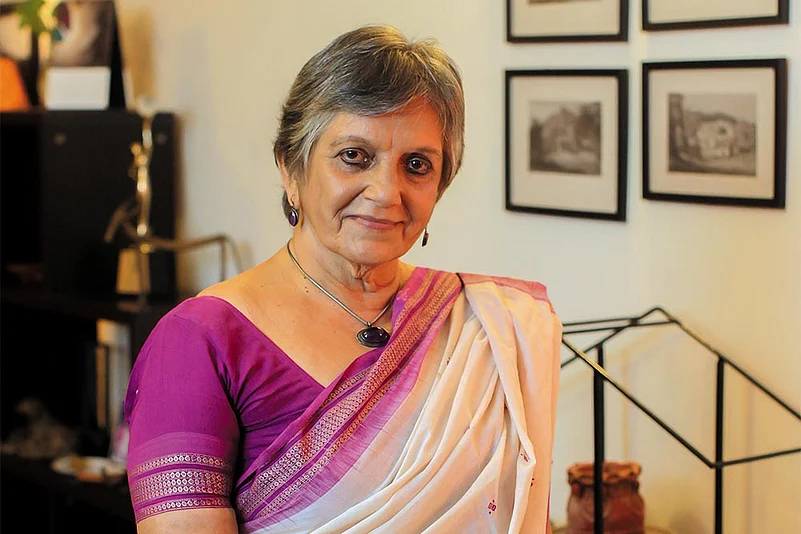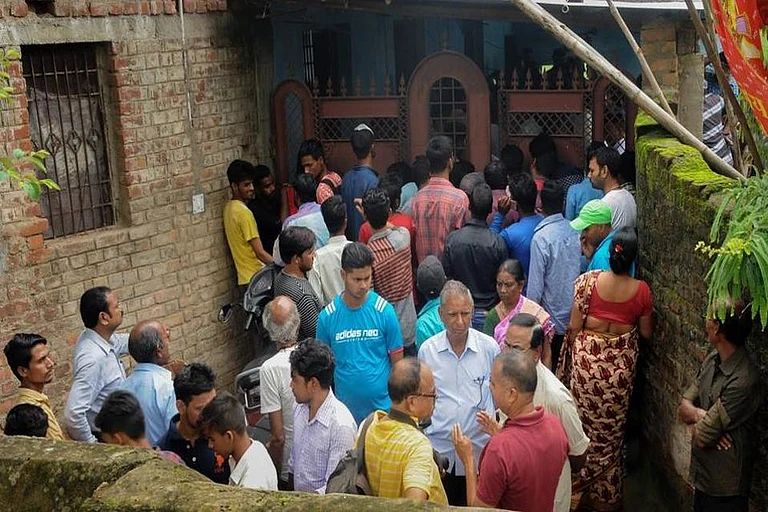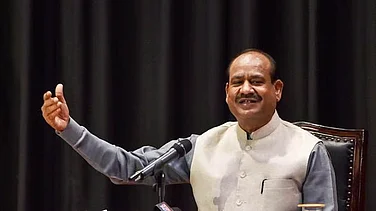Flavia Agnes, a lawyer specialising in marital, divorce and property law, stresses on the need for uniformity of rights across religion and reforms within, rather than the much debated and politicised Uniform Civil Code. In an interview to Bula Devi.
Do you think Uniform Civil Code or codification of personal law and customary practices across all religions can actually ensure gender equality?
I don’t think so. When Hindu marriage laws were codified, polygamy among the Hindus was banned across all sects and groups. Has it really reduced bigamy among Hindus? Statistics tell a different story. What it actually did is to deprive second wives in such marriages of their right to maintenance, residence, etc., and robbed them of their dignity as they are referred to in court proceedings as concubines, mistresses and keeps, who are devoid of rights. They are deprived of their right to a life of dignity and their right to survival under Article 21 of the Constitution as though Constitution protects certain class of women and those who don’t fit into the framework can be cast aside. Similarly, the child marriage restraint Act and prescribing minimum age of 18 for girls among Hindus has reduced child marriage. Again statistics tell a different story as child marriages among Hindus far outnumber child marriages among Muslims. Child marriage reduces when the economic status of the community improves and not because there is a law. We are dealing with the issue in a lopsided manner. We think Uniform Civil Code or banning certain practices among Muslims is the key to liberating all women. This premise is communal and overlooks the ground reality of the place of law reform.
Should polygamy, polyandry or Maitri-karar be banned?
Even if you ban it, if men continue to be polygamous how will you protect women in such relationships? That is the core issue when we are examining the issue from the point of gender justice. Sometimes women are aware of the first marriage, and sometime the men deliberately suppress the information. Among Muslims where polygamy is permitted, each woman has the same status and cannot be deprived of her rights. But when polygamy is banned, men can take full advantage, exploit women sexually and then discard them without any economic consequences visiting them for violating the law, merely by stating that the woman is his second wife and he has a first marriage subsisting. Due to this the Protection of Women from Domestic Violence Act attempted to secure the rights of women in such relationship by coining a word "marriage like relationship".
Should the state interfere in abolishing triple talaq?
This question is based on misconception and ignorance of law. The Supreme Court in Shamim Ara’s case in 2002 has already prescribed the correct procedure to dissolve a Muslim marriage. Several High Courts have followed this ruling. So prescribing the correct procedure and holding that triple talaq is invalid is not new. When Shamim Ara judgment was pronounced in 2002, the media ignored it and now it is hyping the entire debate in a communalised manner.
Should the divorce waiting period amongst Christians be reduced from two years to one year?
Yes this is a statute and this discrimination can easily be rectified by an amendment. There is nothing religious about the Indian Divorce Act. It is an act of Parliament and amendment can easily be brought into it. This question is not comparable to the other questions at all.
Do you think a change in mindset within the society and successive governments is needed before embarking on Uniform Civil Code?
If the Uniform Civil Code is framed in a communally vitiated and anti-minority manner it will always be opposed. The media has ignored the important milestone and developments in law brought about by judicial pronouncements. I think this is a positive way of bringing in reform within personal laws in a step by step manner.
There is a fear that UCC infringes upon an individual's right to freedom of religion, do you agree?
What we need is not a Uniform Civil Code but uniformity of rights across different religions. For this we need to follow the premise, "Reform from Within" in the same way Hindu law was reformed, the Christian Law was reformed and the Muslim law has been reformed without invoking any major political controversy. The present controversy is entirely unwarranted and best avoided.
This web-exclusive Interview does not appear in print magazine.


























